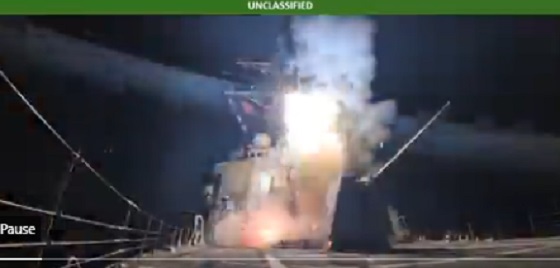International
Russiagate Remnants

 Racket News
Racket News
It would be a crime to abandon investigations into Russiagate, both because it’s ongoing and because of the cost to those of us who were victims of it
We Russia hoax Remnants feel differently about President Donald Trump’s recent landslide victory, and our expectations are diverse. But we all, to some degree, have similar stories and hopes — not for retribution, as delicious as that may be, but for accountability and reform.
And Kash Patel, President Trump’s pick to lead the Federal Bureau of Investigation, is the man we need. Like the President elect, he has seen this abuse up close. They are uniquely qualified.
Make no mistake, when we all chose politics as a profession, we knew it was bloodsport. But none of us expected the personal toll that impacted not just careers, but health and families — especially our children.
There are many families like my own, destroyed completely by the Democrats’ illegal zeal to Get Trump at any cost. During Russiagate and the subsequent hoaxes, I screamed at the top of my lungs on television several times each week as my wife and daughters lived in fear in our Buffalo-area home.
Most Remnants stayed silent. They were the smart ones.
Those subjects of the bogus Russian collusion investigations are quietly reassembling their lives today. Just six or seven years ago, some pulled their children from school, bullied by students and teachers alike. Both parents in at least one family were fired, and with no money for tuition their son was forced to drop out of the college he worked tirelessly to attend. I don’t think he ever returned.
These Remnant stories are commonplace. Many families lost their homes; most lost their life savings. I know of older targets living on meager pensions now that their bank accounts were drained by lawfare legal fees. Those still working are earning less than half the income of their peers.
One family left the country, disheartened by what America had become. Another man, once an international business success, was wrongly debased and finally diminished to serve in a bureaucracy.
Then there is the death and near deaths, the suicide attempts readers will never know, the illnesses brought on by stress. When I fell with head and neck cancer, another Remnant struck by the disease called me twice a week to share our battles. After several months, his calls stopped.
My colleague had finally succumbed to the Crossfire Hurricane plague, unfathomable stress that drives cancer. Readers don’t even know his name; his wife and two young children know he was a hero.
He did nothing wrong. He was a Remnant.
The mentally ill, weaponized by brazen Democrat lies, harassed nearly all of us. My frequent media appearances made me more recognizable than the smarter, quieter Remnants. That made my family a target of a local retired mailman who was arrested and prosecuted for harassment.
My youngest daughters, just five and seven years old at the time, were often harassed while playing in our front yard. A local elderly woman, an otherwise benign community museum volunteer, posted dozens of times on social media during her daily walks by our house, including photos showing our address. She screamed at my girls and mocked their safety.
The bitter old lady died recently and the nutty mailman is still creeping around. Our family prays for their souls because, like all the Remnants, we know the banality of evil. Unhinged activists, some neighbors, forced us to leave our beloved hometown forever. We miss it every day — especially after a big, beautiful Buffalo snowfall.
It’s worse for some, like Paul Manafort, Carter Page, and the inimitable Roger Stone. Last year Roger and I had a late lunch a few miles from his home. Out of nowhere, an Antifa activist showed up to threaten him in the empty restaurant. Clearly, these pongos are still tracking Roger closely. He did nothing wrong, yet I still fear for his safety.
I have talked to many of the Remnants since Election Day. Some have high hopes; these patriots still believe in our justice system. Others expect nothing at all after seeing enough corruption to believe justice is dead. Most are somewhere in between.
All of us agree the original Russiagate conspiracy continues even today. The Russia hoax was created by Hillary Clinton aide Jake Sullivan, who carries on with his lies today as President Joe Biden’s national security advisor. Christopher Steele, the British spy hired by Clinton to create the dodgy dossier, and his Fusion GPS co-conspirator Glenn Simpson are still doing the same work for similar clients. Andrew Weissmann, Peter Strzok, John Brennan, and more still peddle their lies. Elements of the original conspiracy were woven into Ukrainian meddling in the 2016 American election, then bogus Trump impeachments, January 6th prosecutions, anti-Trump lawfare, and Special Counsel Jack Smith’s Mar-a-lago raid.
FBI Director Patel can prove the original 2016 conspiracy continues today. Much of the evidence remains in federal and public databases. Preemptive pardons aside, that means Sullivan, Weissmann, Mary McCord, Steele, Simpson, Victoria Nuland, Alexander Vindman, Eric Ciaramella, Smith, and others may still be in the jackpot. We agree with attorney Mike Davis: these perpetrators potentially violated 18 U.S.C. § 241 and 242, federal civil rights statutes that prohibit conspiracies to violate the rights of others.
This is where many Remnants stand: please do not forget the families in the ash tray and simply move on. Investigate the perpetrators now, reach back to the beginning of their Russiagate criminal conspiracy and follow it to today. Prosecute them fully and legally; expose how they illegally crushed us.
But do this only in pursuit of true justice — not for retribution, but for accountability and reform.
Michael Caputo worked at the highest levels of global politics for 40 years. He served as HHS Assistant Secretary for Public Affairs during the COVID pandemic and as a senior advisor to the 2016 and 2024 Donald Trump for President campaigns. He is the Jeffrey Bell senior fellow at the American Principles Project.
 |
A guest post by
|
This is a publication from Racket News. It takes a considerable effort to provide journalism for you and we really appreciate those who decide to help us in this task.
For the full experience, become a paying subscriber.
This also helps. Thank you if you choose to share
Censorship Industrial Complex
US Under Secretary of State Slams UK and EU Over Online Speech Regulation, Announces Release of Files on Past Censorship Efforts

Sarah Rogers’ comments draw a new line in the sand between America’s First Amendment and Europe’s tightening grip on online speech.
|
|
Business
Largest fraud in US history? Independent Journalist visits numerous daycare centres with no children, revealing massive scam

A young journalist has uncovered perhaps the largest fraud scheme in US history.
He certainly isn’t a polished reporter with many years of experience, but 23 year old independent journalist Nick Shirley seems to be getting the job done. Shirley has released an incredible video which appears to outline fraud after fraud after fraud in what appears to be a massive taxpayer funded scheme involving up to $9 Billion Dollars.
In one day of traveling around Minneapolis-St. Paul, Shirley appears to uncover over $100 million in fraudulent operations.
🚨 Here is the full 42 minutes of my crew and I exposing Minnesota fraud, this might be my most important work yet. We uncovered over $110,000,000 in ONE day. Like it and share it around like wildfire! Its time to hold these corrupt politicians and fraudsters accountable
We ALL… pic.twitter.com/E3Penx2o7a
— Nick shirley (@nickshirleyy) December 26, 2025
-

 Alberta1 day ago
Alberta1 day agoAlberta project would be “the biggest carbon capture and storage project in the world”
-

 Energy1 day ago
Energy1 day agoNew Poll Shows Ontarians See Oil & Gas as Key to Jobs, Economy, and Trade
-

 Business24 hours ago
Business24 hours agoSocialism vs. Capitalism
-

 Energy22 hours ago
Energy22 hours agoCanada’s debate on energy levelled up in 2025
-

 Daily Caller18 hours ago
Daily Caller18 hours agoIs Ukraine Peace Deal Doomed Before Zelenskyy And Trump Even Meet At Mar-A-Lago?
-

 Business4 hours ago
Business4 hours ago“Magnitude cannot be overstated”: Minnesota aid scam may reach $9 billion
-

 Energy2 days ago
Energy2 days agoWhile Western Nations Cling to Energy Transition, Pragmatic Nations Produce Energy and Wealth
-

 International2 days ago
International2 days agoNo peace on earth for ISIS: Trump orders Christmas strikes after Christian massacres










